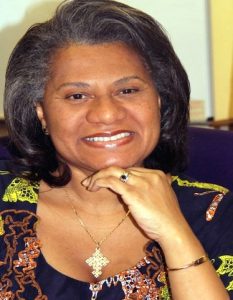IFA Virtual Town Hall Chat Summary 7 August 2020
The following chat summary is from the IFA Virtual Town Hall on 7 August 2020 with Dr. Julitta Onabanjo.
See all IFA Virtual Town Hall Recordings and Resources here.
_____________________________________________________________________________________________
Key Resources
- UNFPA Webinar: Strengthening health & rights through collective action
- UNFPA State of World Population Report: Against My Will: Defying the Practices that Harm Women and Girls and Undermine Equality
- UNFPA resources, including thematic Technical Briefs on COVID-19
- UNFPA COVID-19 Global Response Plan
- COVID-19 Vulnerability Dashboard
- Implications of COVID-19 for Older Persons: Responding to the Pandemic
- UN Policy Brief: COVID-19 and People on the Move
Upcoming Events
- IFA Virtual Town Hall – COVID-19 and Older People: Ageism in the Health Workforce
Friday 14 August 2020 at 7:00 am EDT (Toronto)
_____________________________________________________________________________________
Speaker Biography
 Dr. Onabanjo joined UNFPA in 1995 as a National Programme Officer and thereafter as a Programme Specialist in Swaziland and Kenya, before she served at UNFPA Headquarters as Technical Advisor, HIV/AIDS, and later as Special Assistant to the Executive Director. Dr. Onabanjo has held UNFPA Representative posts in Tanzania and in South Africa, and most recently served as the Regional Director for UNFPA East and Southern Africa.
Dr. Onabanjo joined UNFPA in 1995 as a National Programme Officer and thereafter as a Programme Specialist in Swaziland and Kenya, before she served at UNFPA Headquarters as Technical Advisor, HIV/AIDS, and later as Special Assistant to the Executive Director. Dr. Onabanjo has held UNFPA Representative posts in Tanzania and in South Africa, and most recently served as the Regional Director for UNFPA East and Southern Africa.
Before coming to work for UNFPA, Dr. Onabanjo worked for Planned Parenthood as Programme Director and prior to this, she worked for the Ministry of Health in Nigeria. Dr. Onabanjo is a national of the United States of America and holds a Bachelor’s Degree in biology from the University of London and a Medical Doctor degree from the University of Zambia, in addition to a Master’s Degree in Public Health from the London School of Hygiene and Tropical Medicine.
_____________________________________________________________________________________
Discrimination against older women
- In some countries older women experience discrimination from family members in every aspect of life including nutrition, family ceremonies or social events.
- Older women often experience more poverty and discrimination than men, which is particularly worse if they are widowed. Communities with a higher populations of older women than men may be overlooked or undervalued by social support systems because of this discrimination.
- Reproductive health has generally focused on those of reproductive age, which neglects health concerns of older women. For instance, reproductive health conditions in older age may include fistula, cervical and breast cancers, and hysterectomies. Women’s reproductive and health policies should better respond to the needs of women throughout the life-course.
Collective action
- The unpaid and unrecognised caregiving role of older women in caring for their children, grandchildren, and communities must be elevated among decision-makers. Political commitments and policies regarding the ageing population and older women in particular in Africa must be respected and enforced.
- Discussing the rights of older people is no longer enough. Collective action from government, civil society and individuals is needed to drive forward a strategic agenda.
- Does the current UNFPA strategy highlight activities related to older persons, and how is UNFPA preparing its strategy for 2022-2025 to adequately address the needs of the global ageing population?


